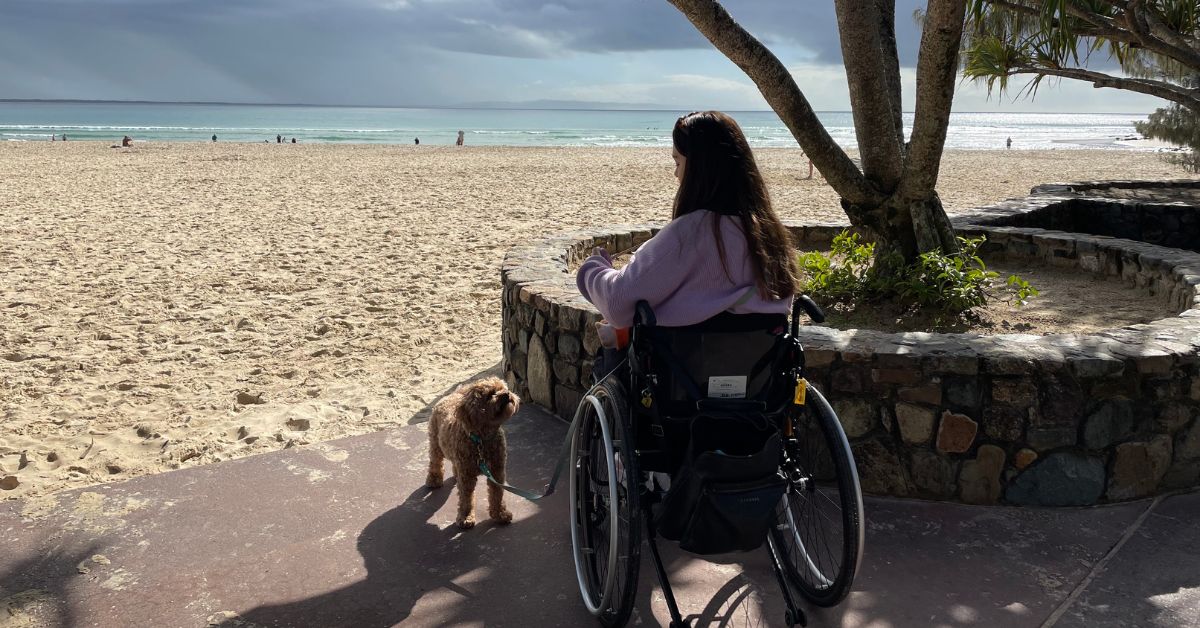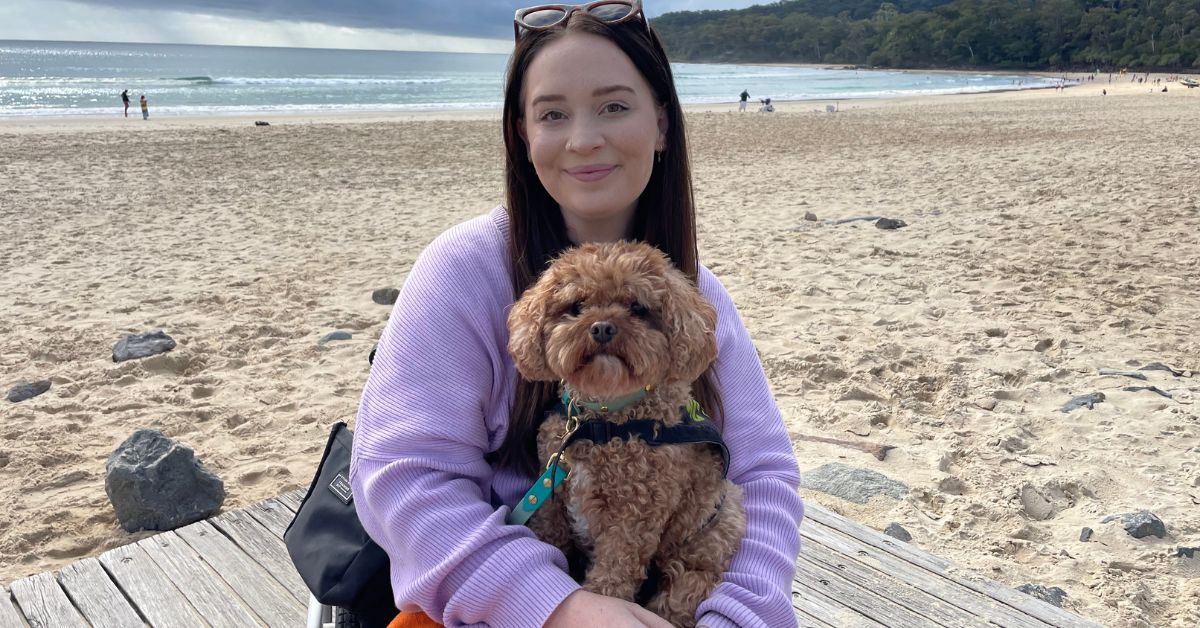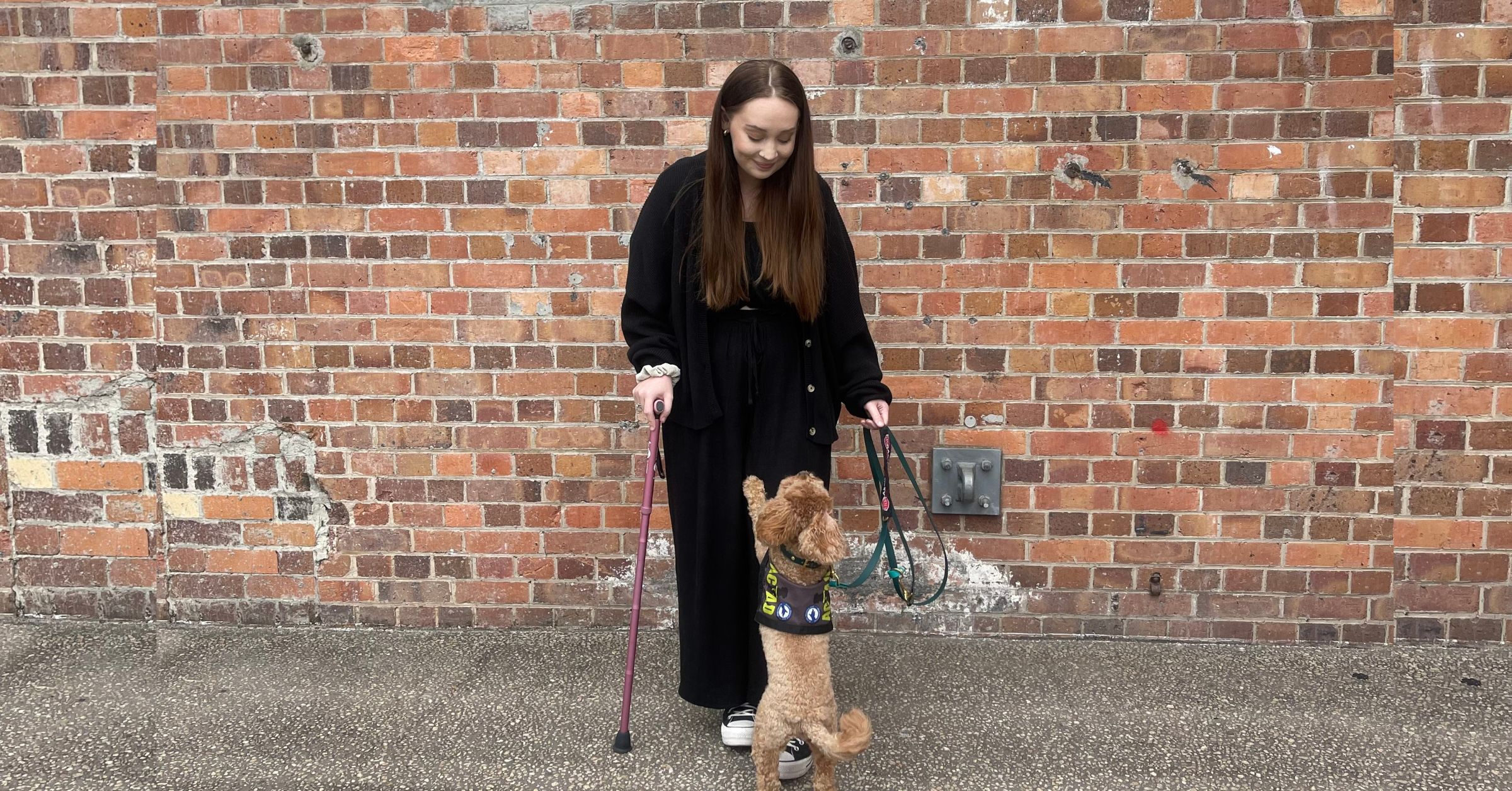Grace Garrahy talks about the impact of disability representation in leadership and employment.
Representation for young people with disability can be lifesaving and life-changing.
It is a chance to emphasise that disabled people’s voices matter, that we can have equal opportunities and that our disability doesn’t change our value. Rather, it allows us to possess so much more which we can bring to the table. We need a more inclusive world that understands and embraces people for all they are; a world that sees the value in lived experience. I believe that representation is a significant part of this change, especially within the workplace and leadership roles.
I didn’t understand who I was, and didn’t feel like there was a place for me in amongst the chaos and confusion of navigating life with my conditions.
Before Representation
When I was younger, I didn’t see people in leadership roles like me, which made me question what I could do with my life or whether my hopes and dreams were possible.
I didn’t understand who I was, and didn’t feel like there was a place for me in amongst the chaos and confusion of navigating life with my conditions. It felt like no one understood me, what I needed, or why I was the way I was.
I often wondered if there was anyone else out there in the world who understood the struggles I faced. I wondered if there was a way I could use what I had been through to help make a difference. I couldn’t comprehend the possibility of how this could happen though, especially due to not seeing any people with disability represented in my workplaces or in leadership roles around me.
As a teenager, I struggled immensely with my mental health. I was battling this innate feeling inside me that I didn’t have anything to bring because of the things I was struggling with, and also due to not receiving the childhood support I had desperately needed.
After many years of misdiagnosis in the mental health system, I eventually received my autism and Ehlers-Danlos Syndrome diagnoses. Yet, I was still yearning and searching for this representation from others who were like me, or who understood the things I was going through as a disabled young person.

Many other aspects of my life were affected, like finding appropriate employment that would not only understand me and what I needed, but create a safe place to voice those needs. I didn’t feel like I could be open and honest about the entirety of who I was, including my disabilities, in fear of not being accepted, accommodated, and heard. Because of this, I didn’t disclose my disability often in employment situations, and if I did, it was a sugar-coated version, in fear of not being taken seriously or not being seen for my value.
Having representation embedded deep within the organisation, with most of the staff themselves having lived experience of disability, has allowed me to feel safe to be who I am and ask for the accommodations I need ...
After seeing representation
When I finally discovered other young, disabled people in leadership roles advocating for people like me, my perspective became more hopeful. I ventured onto social media, desperately looking for others who had similar journeys to my own, and I found so many disabled young people and disabled leaders advocating and sharing their stories in the hope of change.
I discovered many disabled people at the forefront of advocacy, like Dylan Alcott with the Shift 20 initiative, Chloé Hayden, disability advocate and autistic actor, and Jordan Steele-John, senator in parliament. All of them (and so many more) were advocating for meaningful change. Seeing disabled people like them in these roles, using their lived experience, being successful and fighting for a more inclusive world impacted me immensely. These people, and so many more in the community, were paving the way for other disabled people to be in leadership positions where they could be seen for their value, strengths, and impact on the world. If we had more people in leadership roles who are disabled, we would be able to continue making an incredible, momentous impact, helping young people with disability see their worth.

Having the opportunity to be an employee at CYDA on the Youth Council has opened my eyes to what an accessible and inclusive workplace is like. Previously, I had struggled to find employment that met my needs and understood me. Having representation embedded deep within the organisation, with most of the staff themselves having lived experience of disability, has allowed me to feel safe to be who I am and ask for the accommodations I need, all whilst still being seen for my value as an employee. The representation, from the boards to the Youth Council staff within CYDA, has shown me how vital representative leadership truly is, and how much change can be made when disabled people are part of decision-making. I believe that if I had experienced disabled representation within the various areas of my life sooner, my life would’ve been very different. It would’ve empowered me to believe in my skills as an asset, accept who I was as a disabled person, and inspired me to make change within my community sooner.
As employers, when you integrate diverse representation within your workplace and in leadership roles, you make space for people to be heard and contribute valuable perspectives. If more employers ensured disabled people were represented within their organisations, meaningful change would be made in our world, and other young people would be empowered to be wholeheartedly authentically themselves.
This blog was written as part of CYDA’s DREAM Employment Network. You can find out more about the Network here.

About the author:
Grace Garrahy (she/her) is an OT student, accompanied by her assistance dog, Sebastian. Grace’s lived experience navigating the world with disability, mental health, chronic illness and neurodivergence has led to her passion for working with disabled people. She is particularly passionate about representation, accessibility, inclusion and awareness for invisible disabilities.


